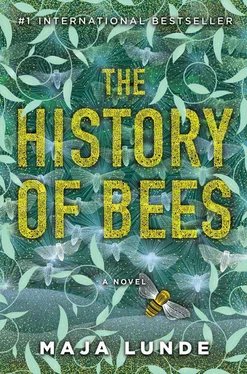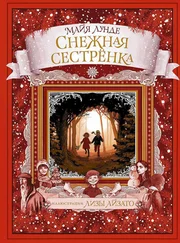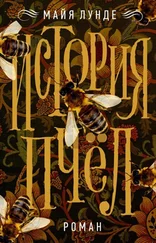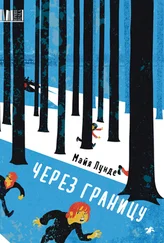“I want to spend the day with Wei-Wen,” I said lightly.
He laughed softly. “So do I.”
But his eyes didn’t meet mine.
“We have many hours, we can get a lot done. I would really like to teach him numbers,” I said.
“Mm.” The still evasive gaze, as if he acquiesced, even though I knew that he was doing the opposite.
“You asked what I wanted to do,” I said. “That’s what I want.”
He got to his feet, then he walked over to me and put his hand on my shoulder, massaged it lightly. A persuasive massage, trying to hit my weak spot; he knew that even if I could resist him verbally, I seldom managed it physically.
I gently twisted out of his grasp, he was not going to win. “Kuan…”
But he just smiled at me, took hold of my hand. Then he pulled me towards the window, stood behind me while letting his hands slide from my shoulders and all the way down towards my hands.
“Look outside,” he said softly and intertwined his fingers with mine. I gently tried to pull free, but he held me tight. “Look outside.”
“Why?”
He held me calmly against him, and I did as he asked. The sun was shining. It was snowing white petals out there. The ground was covered. The petals floated through the air, turning a luminescent white from the sun. The rows of pear trees were endless. The amount of blossoms made me dizzy. I saw them every single day, every individual tree. But I didn’t see them the way I did today. Together.
“I think we should go to town. Dress up, go out and get something good to eat.” His voice was mild, as if he had made up his mind not to get angry.
I tried to smile, meet him halfway, couldn’t start this day with an argument. “Not the town, please.”
“But that’s where everyone is.”
He wanted to join the queue, the way we did every single day. I took a breath.
“Can’t we do something, just the three of us?”
He lifted the corners of his mouth in an attempt at a smile. “Makes no difference to me. As long as we go outside.”
I turned towards the window again, towards the flowers, the white sea. We were never alone out there.
“Maybe we can just walk over there?”
“Over where? To the fields?”
“That’s outside.” I tried to smile, but he did not return it.
“I don’t know…”
“It will be nice. Just the three of us. And then we won’t have to walk that long distance with Wei-Wen. It will be good for him to be spared that, just this once?”
I lay my hand on his upper arm, an affectionate gesture, refrained from saying anything more about the lesson. But he saw through me.
“And the books?”
“We can bring some with us? And I needn’t keep at it all day.”
His eyes finally met mine. Resigned, but with a little smile.
Istood beside the desk. It was placed by the window, where the light was the best, the most suitable place in the room and absolutely the most pleasant. But I hadn’t sat here in months.
One lone book lay on the table. Was it Edmund who had placed it there while I was sleeping?
The pages were yellowed, a thin layer of dust covered the top and the brown leather cover was dry and brittle against my fingers. Now I recognized the work, I’d purchased it in the capital during the years when I’d been a student. At that time I happily sacrificed my midday meal for a week in exchange for a new book. But this book in particular I’d never got around to reading, probably it had been purchased towards the end of my time as a student. It was written by François Huber, published in Edinburgh in 1806, almost forty-five years ago and the title read: New Observations on the Natural History of Bees .
It was a book about bees, about the beehive, the superorganism, where each individual, each tiny insect was subordinate to the greater whole.
Why had Edmund picked out this book? This book in particular?
I took out my spectacles, had to wipe off the dust on my shirt, then I sat down. The feeling of the desk chair against my back was like meeting an old friend.
The cover creaked in protest when I opened the book. I carefully turned the title page and then I began to read.
I knew of François Huber’s story from my student days, but had never really studied his theories in depth. He was born into an extremely well-to-do Swiss family in 1750. The father had ensured the wealth of the family, and unlike himself, little François had never been obliged to work, but there were clear expectations on the part of his family that he should immerse himself in intellectual pursuits and in this way justify his position on this earth. He had to create something, something that put both his name and the family name on everybody’s lips; he was supposed to write them into the history books. François did his utmost to please his father. He was an intelligent child and read difficult works even as a young boy. He stayed awake into the wee hours, hidden behind a stack of exceedingly thick books, reading until his eyes burned and ran, until they were gleaming with pain. Finally it was too much for him, the pressure too great, and his eyes couldn’t take anymore. For the books did not lead him into an era of enlightenment, they led him into darkness.
As a fifteen-year-old he was almost blind. He was sent to the countryside, told to rest and not exert himself, he could help out with simple farm work, that was all.
But young François couldn’t rest, because he hadn’t forgotten the expectations which once had rested on him, and his mind was designed in such a way that he viewed his blindness not as a hindrance, but as an opportunity, because even though he could no longer see, he could still hear, and around him, on all sides, was life itself. Birds sang, squirrels chattered, the wind blew through the trees and the bees hummed.
The latter in particular caught his attention.
He slowly commenced his scientific work, which became the foundation for the book I held between my hands. With the valuable assistance of his faithful apprentice and namesake François Burnens, he started mapping out the honeybees’ different life phases.
The first important discovery the two of them made was in connection with fertilization itself. Nobody had formerly understood how the queen was impregnated; the process had never been witnessed before, although various scientists in different periods had carried out enthusiastic observational studies of life in the hive. But Huber and Burnens understood what was crucial, that fertilization did not take place on the inside, but rather, outside. Newborn queens left the hive, flew away and it was there, on these flights, that it happened. The queen came back, full of the sperm of the drones but also covered with their reproductive organs, which had been torn off in the act. How nature could demand such a ludicrous sacrifice on the part of the drone was a question to which Huber never found an answer. That nature actually demanded the greatest sacrifice of all, death, was not discovered until later, and perhaps it was just as well that Huber never understood precisely this. Perhaps it would have been too much for the blind Huber to take, that the drone’s only duty in life was to reproduce, and in so doing, to die.
Huber not only studied the bees, he also did what he could to improve their lot. He set about constructing a new type of beehive.
For many years, people’s contact with bees was limited to the harvest of natural hives, crescent-shaped honeycombs, built by the bees themselves on branches or in hollows. But with time, some people became so obsessed with the bees’ gold that they wanted to keep them like domestic animals. Attempts were made to build ceramic beehives, but with little success, and then the straw hive was developed, which was the most common in Europe in Huber’s day. In my district they still predominated, they blended in like part of the wildlife in the fields and on the roadsides. I had never before reflected upon these hives, not before now, reading Huber’s book, but they had their shortcomings. It was difficult to inspect the inside of the straw hive and when the honey was to be harvested, it had to be pressed out of the honeycombs, destroying eggs and larvae in the process, so that the honey was impure. Not to mention that the honeycombs themselves were destroyed. The bees’ home.
Читать дальше









